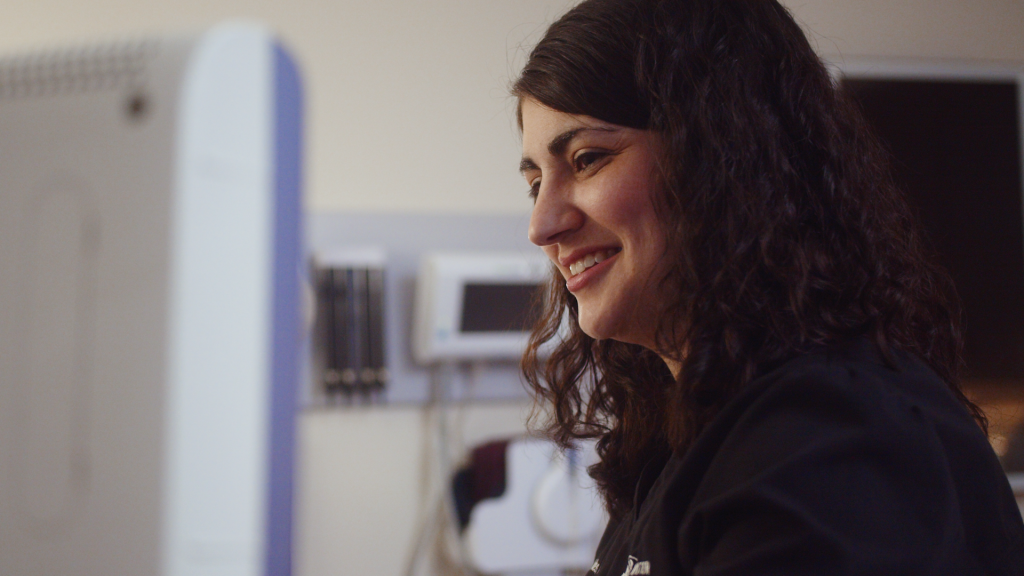July 28th is World Hepatitis Day.
It’s an annual day of awareness for the virus, and recognition for the 354 million people affected by viral hepatitis worldwide. The CDC says one million people die from hepatitis each year. And while deaths from other viruses like HIV and tuberculosis are dropping, deaths from hepatitis are going up.
“It’s a dangerous disease to have because patients for one need to have the resources to come and get their labs and be diagnosed with hepatitis, and then be able to follow up with primary care,” says Callie Wentling, Director of Clinical Quality & Engagement. “Providing the education to them to understand the options for treatment and ways to prevent the spread of their disease to other loved ones is important.”
Each of the 5 kinds of hepatitis cause liver infection, but all spread in different ways, affect different populations, and cause different health issues. That’s why regular testing and treatment are important to help keep you healthy. In this blog, we’ll take a look at what makes each version of hepatitis unique, and how it could impact you.
The ABCs of Hepatitis
Hepatitis A – Hepatitis A is found in the stool and blood, and is highly contagious through personal contact or eating contaminated food or drink. Symptoms include tiredness, nausea, stomach pain, and jaundice. Is generally a short-term illness, and there is a vaccine
Hepatitis B – Spreads when body fluids transfer from one person to another, such as during intercourse, or from mother to child at birth. Not everyone shows symptoms, but those that do suffer from tiredness, poor appetite, stomach pain, nausea, and jaundice. Hepatitis B can be short-term, or long-term and can lead to serious health issues like cirrhosis or liver cancer. The CDC says roughly 90% of infants with hepatitis B develop a long-term infection, compared to only 2–6% of adults. There is a vaccine.
Hepatitis C – Spreads through contact with infected blood, or during intercourse. Hepatitis C can be a short-term or long-term illness and can result in serious health problems like cirrhosis and liver cancer. Hepatitis C often shows no symptoms, but when they appear it’s often a sign of advanced liver disease. Getting tested for hepatitis C is important as treatments can cure most people in 8 to 12 weeks. There is no vaccine.
Hepatitis D – Only affects those also infected with hepatitis B. Hepatitis D spreads from the body fluids of an infected person entering the body of someone else. It can be short or long-term, with severe symptoms that can lead to life-long liver damage and even death. There is no vaccine to prevent hepatitis D. However, prevention of hepatitis B with a vaccine also protects against hepatitis D.
Hepatitis E – Found in the stool of an infected person, it is spread through drinking contaminated water or eating things like raw or undercooked pork, venison, wild boar meat, or shellfish. Symptoms aren’t common, but include tiredness, poor appetite, stomach pain, nausea, and jaundice. most people fully recover from the disease. There’s no vaccine in the United States.
You’re Covered, from Treatment to a Cure
At Hunter Health, we test all pregnant women for hepatitis B and C, and all adults for hepatitis C as part of our commitment to fully-encompassing care. Everyone will take the blood test at least once, we test patients at high risk for hepatitis multiple times. In addition, we began new treatment just last year that has already cured over a dozen patients with hepatitis C.
“It’s very liberating for those patients to know they don’t have to live with that anymore,” says Dr. Caitlin Chiles, Director of Primary Care. “I think a lot of them are still in disbelief that they don’t have to live with that anymore because they’ve been told for so long ‘this is something you’ll have for the rest of your life and there’s not much we can do about it.”
We also offer low-cost vaccinations for hepatitis B, offer education for those most at risk, and connect patients with the care they need to live a happy, healthy life. Schedule an appointment with us, learn about your hepatitis status, and take control of your health today by calling (316) 262-2415.


